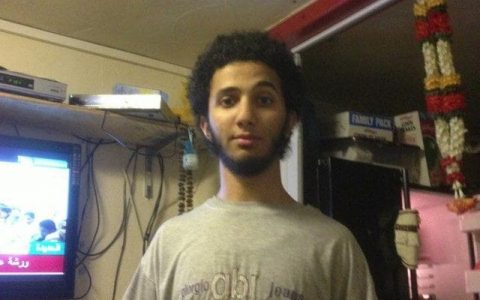
British jihadi Aseel Muthana begs to return home from overcrowded Islamic State prison in Syria
A Welsh man who left the UK at 17 as one of the first British recruits to join the Islamic State group has been found in a secret prison in northern Syria, where up to 5,000 inmates are living packed into tiny cells.
Aseel Muthana left his job as an ice-cream salesman in his Cardiff hometown in 2014 to follow his brother to Syria.
Mr Muthana’s brother Nasser was a prominent recruiter for Islamic State of Iraq and the Levant (Isil), and their close friend Reeyad Khan appeared in one of the first Isil propaganda videos. Both Nasser and Aseel were added to the United Nations sanctions list in 2015. Nasser is believed to have been killed in an air strike in 2016.
Mr Muthana’s family say they tried to de-radicalise him in the run-up to his departure, even confiscating his passport, but he managed to obtain forged travel documents.
In 2015 his father Ahmed Muthana accused British authorities of not doing enough to stop his son from travelling to Syria.
Mr Muthana told interviewers he had been lured to Syria by false Isil propaganda. “We came when [Isil] propaganda and [Isil] media was all about helping the poor, helping the Syrian people.”
“We stuck with the people you know from the UK and from Wales… the Welsh guys… me and my brother and Reeyad [Khan].”
Mr Muthana told ITV News that he missed his mother and his life in Cardiff, and wanted to return home. He had been presumed dead until the discovery.
When Mr Muthana’s mother was told her son was alive, she said told ITV she felt “extreme joy” and begged British authorities to bring him home.
Western governments are facing increasing criticism for their unwillingness to repatriate their citizens who allegedly fought or cooperated with Isil and try them in domestic courts.
Legal experts warn that local forces currently organising detention of these foreigners will soon be unable to cope, and predict mass jail breaks and a resurgence of Isil attacks if nothing is done.
“The only way for the international community to share this burden is for each country to step up and do its part, otherwise it becomes a problem too big to solve and that’s a very dangerous scenario,” said Jasmine El-Gamal, a former Syria advisor to the Pentagon.
Source: Telegraph





